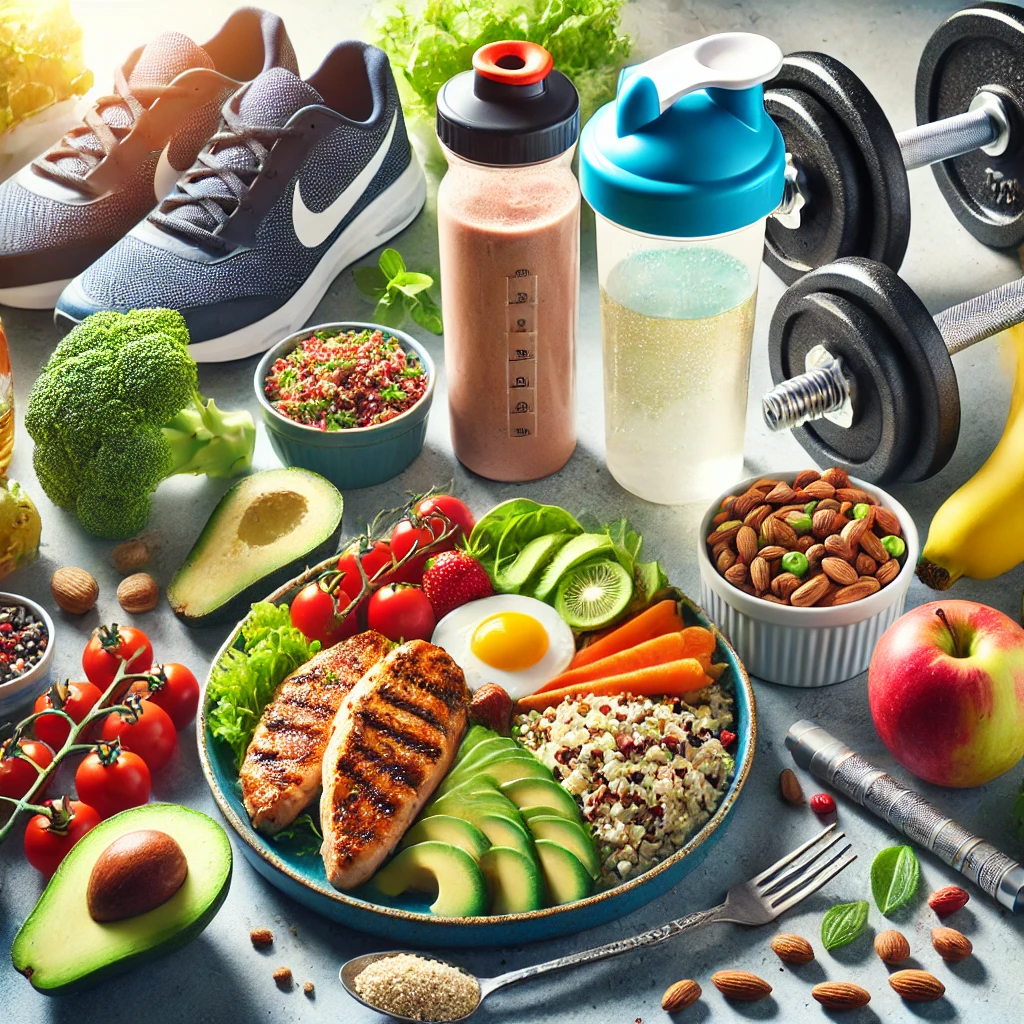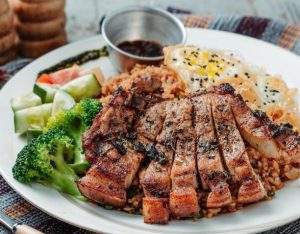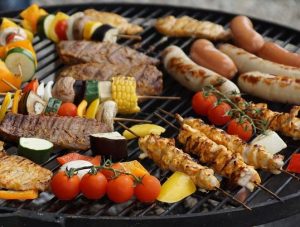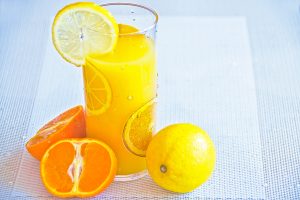
Introduction
Sports nutrition is a specialized area of nutrition focusing on the dietary needs of athletes and active individuals. Proper nutrition plays a pivotal role in optimizing performance, speeding up recovery, and reducing the risk of injury. Whether you’re a professional athlete, a weekend warrior, or someone just starting a fitness journey, understanding the principles of sports nutrition is crucial for achieving your goals.
This article delves into the essentials of sports nutrition, offering practical advice on what to eat, when to eat, and how to tailor your diet to meet the demands of your sport.
Sports Nutrition: 5 Best Sports Nutrition Supplements
Best 7 Warm-Up Exercises to Improve Athletic Performance
10 Best Nutrients to Look for in a Multivitamin for Athletes
Understanding the Basics of Sports Nutrition
1. The Role of Macronutrients
Macronutrients—carbohydrates, proteins, and fats—are the cornerstone of any athlete’s diet. Each serves a specific function:
- Carbohydrates: The body’s primary energy source, especially during high-intensity activities. Stored as glycogen in muscles and the liver, carbs provide the fuel needed for prolonged exercise.
- Proteins: Crucial for muscle repair and growth. Protein intake is especially important after workouts to aid in recovery.
- Fats: While often misunderstood, fats are a vital energy source, particularly for endurance athletes. They help maintain energy levels during long-duration activities.
Balancing these macronutrients is key to maintaining energy levels and supporting overall performance.
2. The Importance of Micronutrients
Vitamins and minerals, or micronutrients, might not provide energy, but they play essential roles in metabolic processes and maintaining overall health:
- Iron: Essential for oxygen transport in the blood, critical for endurance athletes.
- Calcium and Vitamin D: Important for bone health, especially in high-impact sports.
- Antioxidants (Vitamins C and E): Help combat oxidative stress from intense exercise.
A varied diet rich in fruits, vegetables, lean proteins, and whole grains usually covers these needs, but athletes may require supplements in some cases.
3. Hydration and Electrolytes
Staying hydrated is crucial for peak performance. Even slight dehydration can impair physical and cognitive abilities. Electrolytes like sodium, potassium, and magnesium are also lost through sweat and must be replenished to maintain muscle function and prevent cramps.
4. The Timing of Nutrient Intake
When you eat is almost as important as what you eat. Timing meals and snacks to coincide with your training and competition schedule can enhance performance and recovery:
- Pre-Workout Nutrition: Focus on carbs and some protein. A meal 2-3 hours before exercise should provide a mix of complex carbs, lean proteins, and some fats.
- During Exercise: For activities lasting longer than an hour, consuming easily digestible carbs can help maintain energy levels.
- Post-Workout Nutrition: A combination of protein and carbs within 30 minutes to 2 hours post-exercise aids muscle recovery and glycogen replenishment.
Crafting a Personalized Sports Nutrition Plan
5. Assessing Your Energy Needs
The energy demands of sports vary greatly depending on the type, intensity, and duration of the activity. Endurance athletes, for instance, require a higher caloric intake than those involved in short, high-intensity sports. To ensure you’re meeting your energy needs, consider working with a sports nutritionist to calculate your Basal Metabolic Rate (BMR) and activity level.
6. Balancing Macronutrients for Your Sport
Different sports require different macronutrient ratios:
- Endurance Sports (e.g., running, cycling): A higher proportion of carbohydrates (60-70% of total intake) is necessary to sustain long periods of activity.
- Strength Sports (e.g., weightlifting, wrestling): Increased protein intake (1.2-2.0 grams per kilogram of body weight) supports muscle repair and growth.
- Team Sports (e.g., soccer, basketball): A balanced approach with a mix of carbs, proteins, and fats is typically best.
7. Importance of Meal Planning and Preparation
Meal planning is a powerful tool for athletes. Preparing balanced meals and snacks ahead of time ensures you have the right fuel available when you need it. Consider these tips:
- Breakfast: Start your day with a mix of protein (e.g., eggs, yogurt) and carbs (e.g., oatmeal, whole-grain toast).
- Lunch and Dinner: Focus on a balance of lean proteins (e.g., chicken, fish), complex carbs (e.g., quinoa, sweet potatoes), and healthy fats (e.g., avocado, nuts).
- Snacks: Keep energy-boosting snacks like fruit, nuts, and protein bars on hand for pre- and post-workout fueling.
8. Adapting Your Diet for Training and Competition
Your diet should evolve with your training cycle:
- Off-Season: Focus on maintaining a healthy weight and building muscle. You might reduce carbs slightly but ensure adequate protein for muscle maintenance.
- In-Season: Increase carbohydrate intake to match the energy demands of competition. Pay attention to meal timing to optimize performance.
- Pre-Event: In the days leading up to a major event, carb-loading (increasing carbohydrate intake) can maximize glycogen stores. Stick to familiar foods to avoid digestive issues.
Supplementation in Sports Nutrition
9. When and How to Use Supplements
Supplements can play a role in sports nutrition but should never replace whole foods. Popular supplements include:
- Protein Powders: Convenient for post-workout recovery when whole food options aren’t available.
- Creatine: Enhances strength and power in high-intensity sports.
- Branched-Chain Amino Acids (BCAAs): Help reduce muscle soreness and support recovery.
- Electrolyte Supplements: Useful during prolonged exercise, especially in hot climates.
Always consult a healthcare professional before starting any supplement regimen.
10. The Role of Ergogenic Aids
Ergogenic aids are substances or devices that enhance athletic performance. These range from legal options like caffeine and beta-alanine to banned substances. It’s essential to understand the risks and regulations associated with these aids. Using them should be done with caution, ideally under professional supervision.
Overcoming Common Challenges in Sports Nutrition
11. Managing Dietary Restrictions and Preferences
Athletes with dietary restrictions (e.g., vegetarian, vegan, gluten-free) can still meet their nutritional needs with careful planning. Plant-based athletes should pay extra attention to protein sources, iron, and vitamin B12 intake.
12. Eating on the Road
Traveling for competitions presents unique challenges. Plan ahead by packing portable, non-perishable snacks, and researching dining options at your destination. Opt for simple, familiar foods that won’t upset your stomach before an event.
13. Dealing with Digestive Issues
Intense exercise can sometimes lead to digestive discomfort. To minimize issues, avoid high-fiber, high-fat, or very spicy foods before exercise. Testing different foods during training, not just on competition day, can help identify what works best for your body.
The Psychological Aspect of Sports Nutrition
14. The Relationship Between Food and Mental Performance
What you eat affects not only your physical performance but also your mental sharpness. Omega-3 fatty acids, found in fish and flaxseeds, support brain health, while complex carbs provide a steady supply of glucose to the brain, helping maintain focus and concentration during sports.
15. Avoiding Disordered Eating Patterns
Athletes may be at higher risk for disordered eating due to the pressures to maintain a certain body weight or appearance. It’s crucial to maintain a healthy relationship with food, viewing it as fuel rather than the enemy. Working with a dietitian or sports psychologist can help ensure your eating habits are both healthy and sustainable.
FAQs on Sports Nutrition
1. What should I eat before a workout?
- Aim for a meal rich in carbs and moderate in protein about 2-3 hours before your workout. A snack like a banana with peanut butter or a granola bar 30 minutes to an hour before can also help.
2. How important is hydration in sports nutrition?
- Hydration is critical. Even mild dehydration can negatively impact your performance. Drink water throughout the day, and consider sports drinks during prolonged or intense exercise to replenish lost electrolytes.
3. Can I meet my protein needs without supplements?
- Yes, most athletes can meet their protein needs through food alone. Lean meats, dairy, eggs, and plant-based sources like beans, lentils, and tofu are excellent options.
4. Should I avoid fats if I’m trying to improve my athletic performance?
- No, fats are essential for long-lasting energy, hormone production, and overall health. Focus on healthy fats like those from avocados, nuts, seeds, and olive oil.
5. Is carb-loading beneficial for all athletes?
- Carb-loading is particularly beneficial for endurance athletes who participate in events lasting over 90 minutes. For other sports, maintaining a balanced carb intake throughout the training period is usually sufficient.
6. How do I know if I need supplements?
- Supplements should be considered if you have specific nutritional deficiencies or increased needs due to the intensity of your sport. A healthcare provider or sports nutritionist can help determine if supplements are necessary.
Conclusion
Sports nutrition is a vital component of any training regimen, significantly influencing an athlete’s performance, recovery, and overall health. By understanding and applying the principles of sports nutrition—balancing macronutrients, staying hydrated, timing meals effectively, and considering supplementation—athletes can fuel their bodies to achieve their peak potential. Whether you’re an elite athlete or just beginning your fitness journey, making informed nutritional choices will set the foundation for success.



